Living each day to its fullest! My days of learning in Indonesia, filled with challenges and growth.
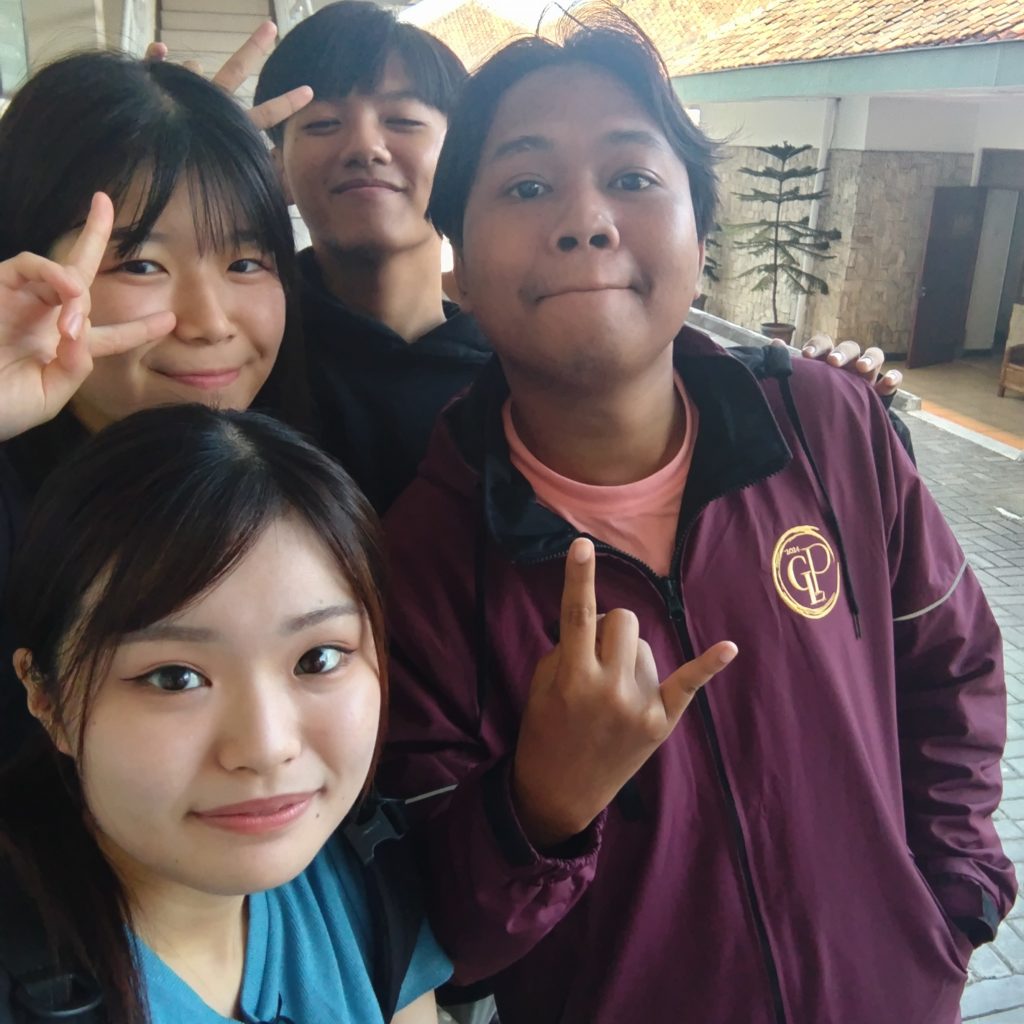
■Name: Hayashi Natsuki
■Faculty/Department/Year (at time of study abroad): Faculty of Foreign Studies, Department of Luso-Brazilian Studies, 2nd year
■Period of study abroad: August 2024
■Place of study abroad (country/university): Sanata Dharma University, Indonesia
■Type of study abroad: Social Engagement Programs/Global Leadership Program (GLP)
Every year, many Sophia University students study abroad in countries all over the world outside of Japan. How did they manage to find their way through the differences in languages, cultures, and lifestyles? Here are some voices of students who studied abroad.
What prompted you to consider joining the program?
I had never traveled to another country before, and by my sophomore year of college, I wanted to gain experience beyond what I learn in the classroom. Since I needed to fund my study abroad myself, I searched for a program that would be all worthwhile my investment.
How did you choose your study abroad destination?
I didn’t have particular preferences for my destination. I focused on whether there would be plenty of opportunities to speak English with others. I wanted a challenging experience. Each practical program offered at Sophia University has its own unique features, so I believe one can find a suitable program that is both exciting and motivating.
So, did you have any concerns before studying abroad?
I felt overwhelmed by everything. I was concerned about my English abilities, the prospect of flying, and adjusting to life in my host country. However, my enthusiasm outweighed my fears, so I tried to ease my anxiety by reaching out to friends for advice and exposing myself to English daily.
What preparations did you find most helpful for studying abroad?
There are two things: First, learning about the host country. As the saying goes, “When in Rome, do as the Romans do.” Research the country’s religion, culture, and customs in advance so you’re aware that your common sense may not always apply at your destination.
The second is setting personal goals. Your time abroad can be made much more rewarding by establishing your own rules. Some examples of rules could be “Initiate conversation at least three times a day” or “Translate sentences you wanted to say before bed but couldn’t express in English.”
What was the atmosphere like at the university and among the students?
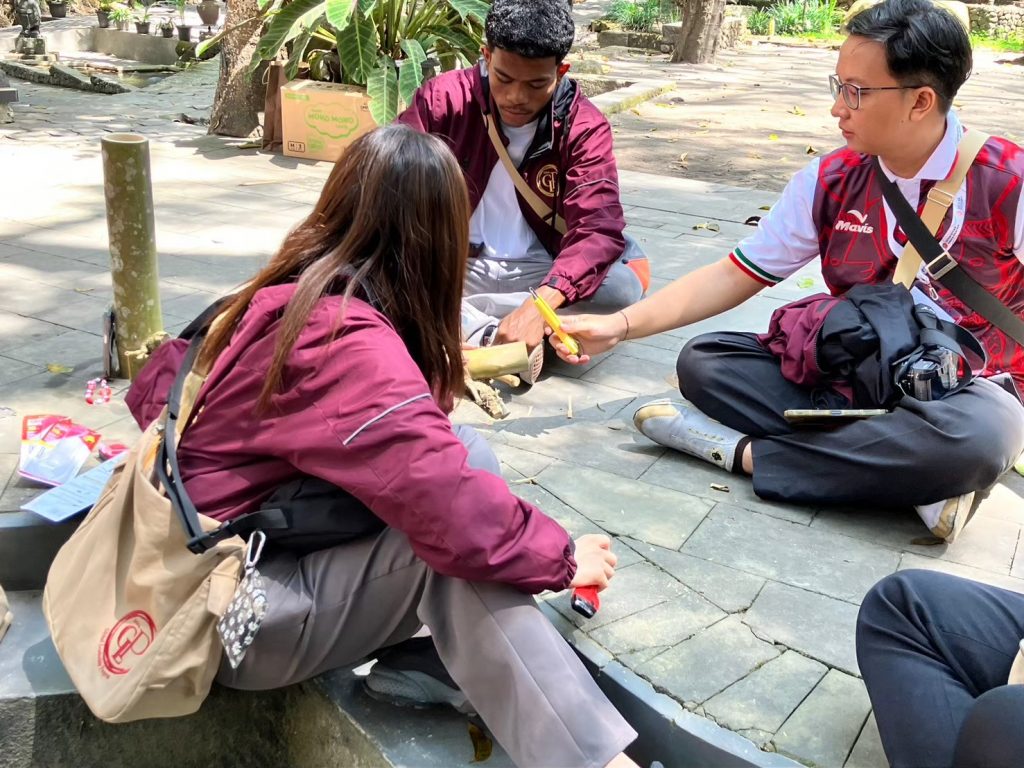
Everyone was incredibly cheerful. They also had a very strong love for their respective nations. In their everyday conversations, they often shared their thoughts on topics like their country’s religion, politics, and history. Many students were motivated to learn with a sense of responsibility for their nation’s future, and I felt inspired by their attitude.
How did you make more friends?
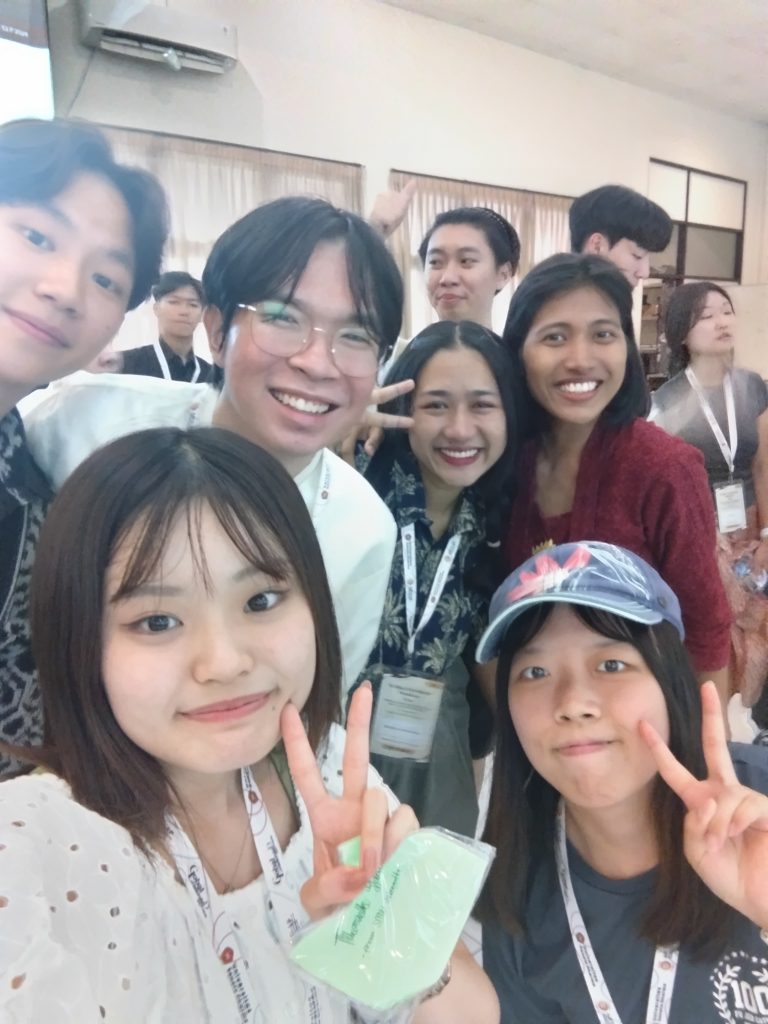
For me, it was going out and having fun. In the afternoons, we’d explore popular tourist attractions and spend a lot of time chatting about love, relationships, or different cultures from around the world. I think spending time together is essential for building deep connections. People need to get to know you first to become close with you. We played UNO, too! It was so much fun!
What were the differences, if any, in terms of class atmosphere, learning content, or exams compared to Japan?
Their primary focus was on active learning. I genuinely came to understand the significance of sharing my learning with others. This included discussing lecture content with peers, sharing insights gained from fieldwork, and synthesizing all of these experiences into a final presentation.
Outside of your studies, what was your primary focus?
Staying cheerful at all times. To be honest, it was exhausting. It was my first time abroad, sharing a room with another person, and I couldn’t speak English very well. However, I kept reminding myself that this was a once-in-a-lifetime experience, so I shall make the most of it. Many people approached me as I smiled, and it opened up opportunities for interaction.
Please describe what unique charms you came across at your destination or any new discoveries you made.
Jogjakarta was a truly wonderful place. The food was delicious, and the weather was perfect. Even showering with just cold water was enjoyable and remains one of my best memories. Since my destination was outside the metropolitan area, I would love to visit Jakarta, the capital, if I get the chance.
What was the most challenging aspect during your study abroad? How did you overcome these challenges?
I found it hard to keep up with the conversations of my classmates and to express myself in English. Honestly, it was tough at times. I would often look to Japanese students for support during those moments, but I had a rule that I made for myself. Every night, I would make a point of writing about these experiences in my diary. I would research and organize my thoughts on what I truly wanted to say, as well as the English expressions I should use next time I faced a similar situation, before going to sleep.
In which areas do you feel you have grown, or how has your awareness changed, before and after studying abroad?
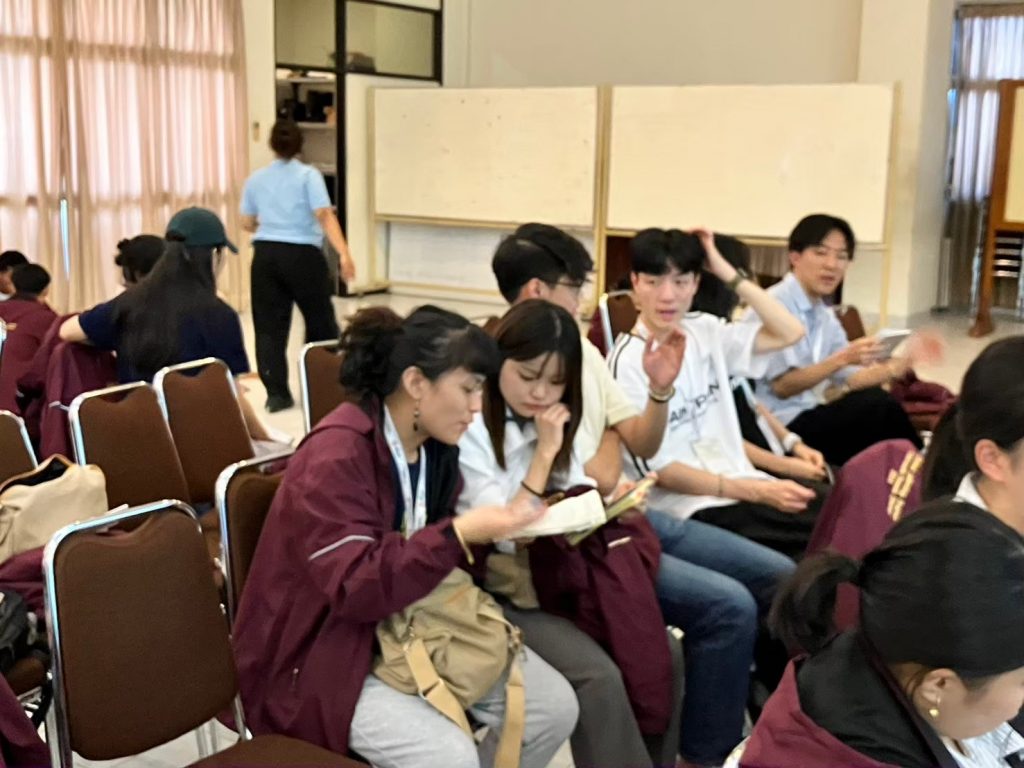
Studying abroad taught me two things. The first is my personality. I tend to compare myself to others, but I was inspired by how students from other countries have such strong self-esteem. Seeing them strive to grow while accepting themselves as they have made me more positive too, and I now enjoy trying for its own sake.
Secondly, my approach to learning changed. Until I joined university, my studies were mainly classroom-based. This experience made me realize the value of proactive learning, such as gaining insights from everyday events and questions without clear-cut answers.
How do you think your experience of studying abroad will impact your life going forward?
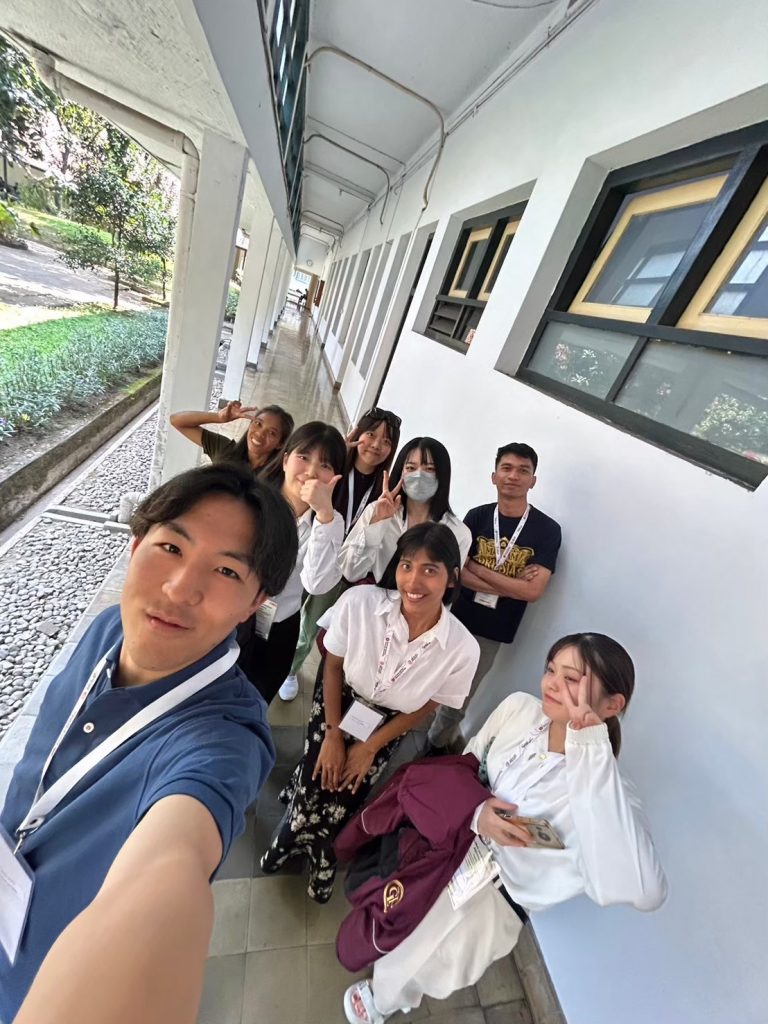
In the short term, I believe it will benefit my job-hunting quest. I no longer impose limits on myself, and I am comfortable taking the initiative. Although I still occasionally compare myself to others, a habit I dislike, my study abroad experience has allowed me to embrace a spirit of challenge, believing that ‘I am capable of anything’. Moreover, I now enjoy the process as well as the outcome.
Additionally, my desire to work for the prosperity of my home country has grown stronger. When choosing a job, my priority is whether I can work with a sense of contribution to the society even that isn’t something grand.
Do you have any advice for people considering studying abroad?
No need to worry, even if you don’t have extensive overseas experience. I spent my high school years mainly learning in the classroom, yearning to become fluent in English but unable to take that first step. However, Sophia University offers countless opportunities to transform yourself, both in terms of your studies and personal growth. Its practical programs, in particular, provide the support you need to take that step. You’ll gain experiences that can’t be gained in lectures, and you’ll meet peers who can work with you towards a shared goal. By challenging yourself time after time, you will not only deepen your learning but also expand your world! That’s precisely why I hope as many of you take on the challenge without any reservations. Enjoy the journey!